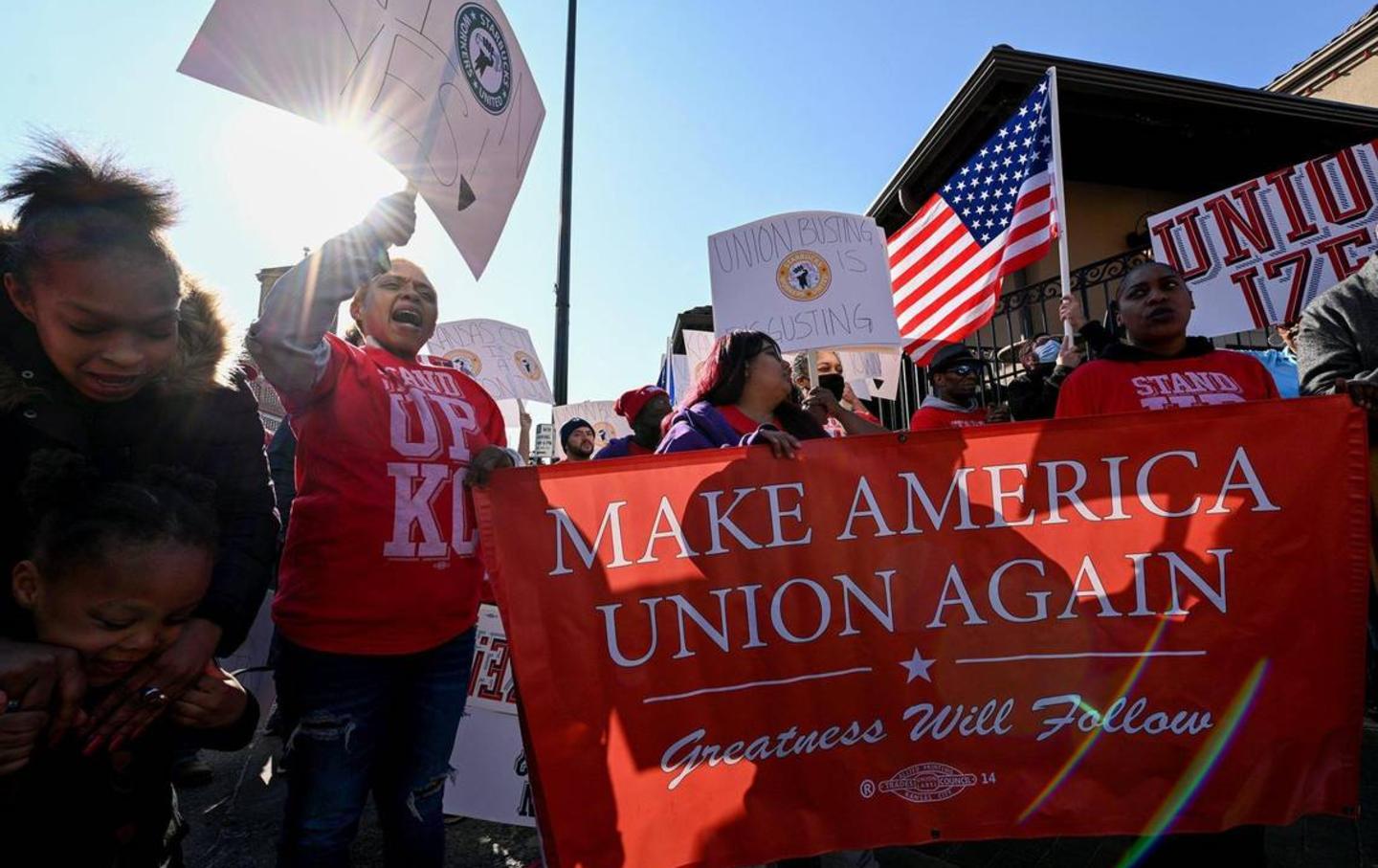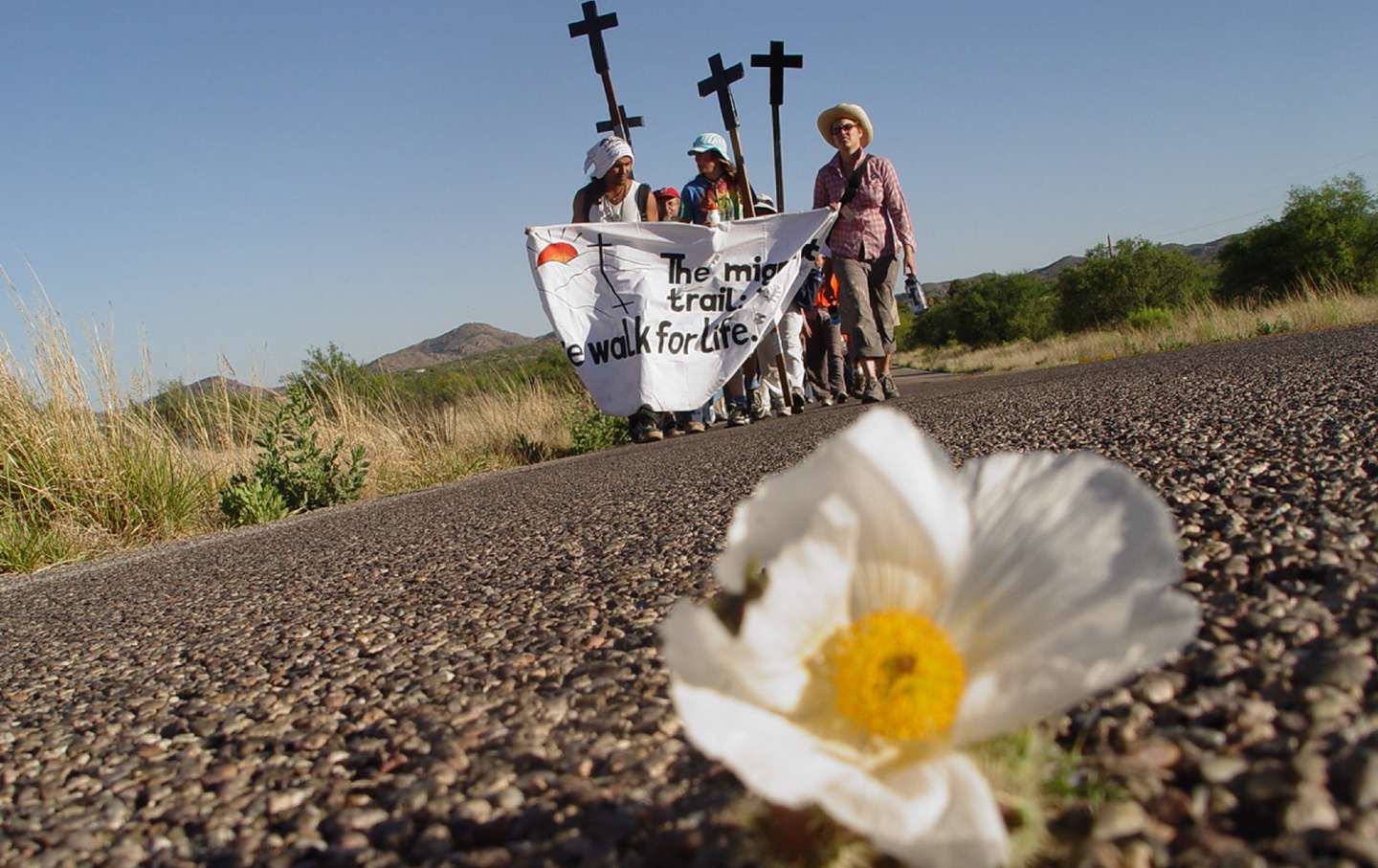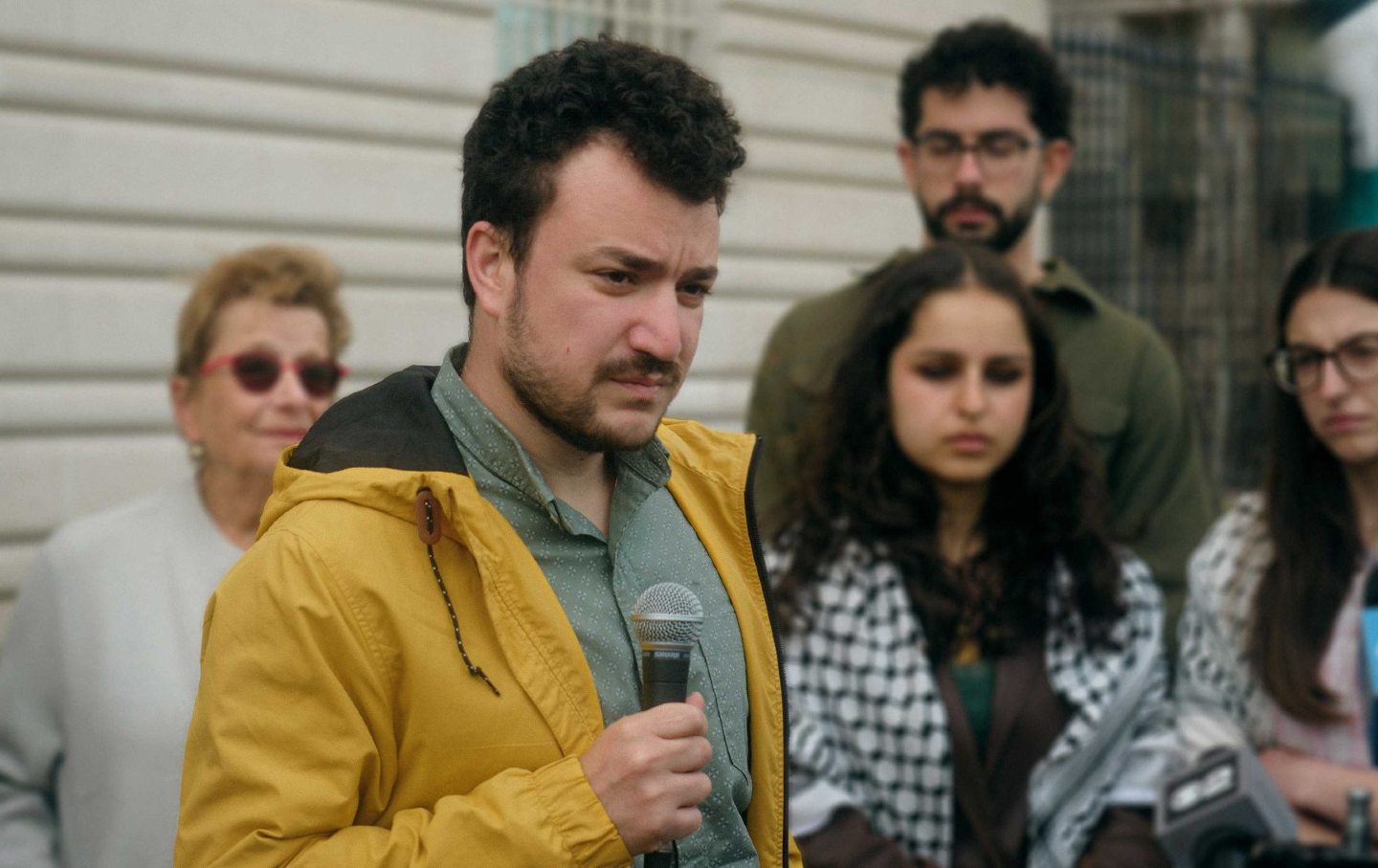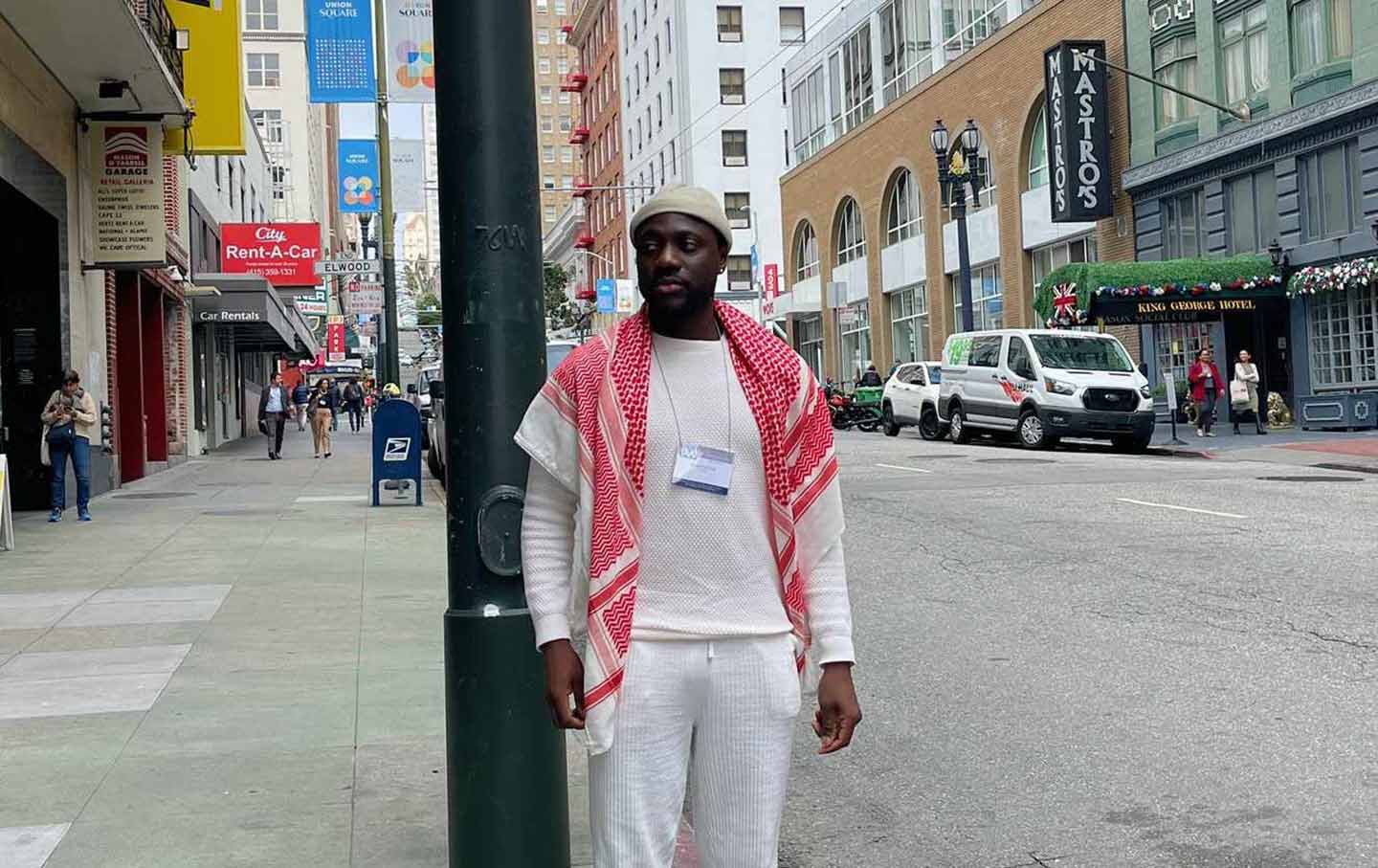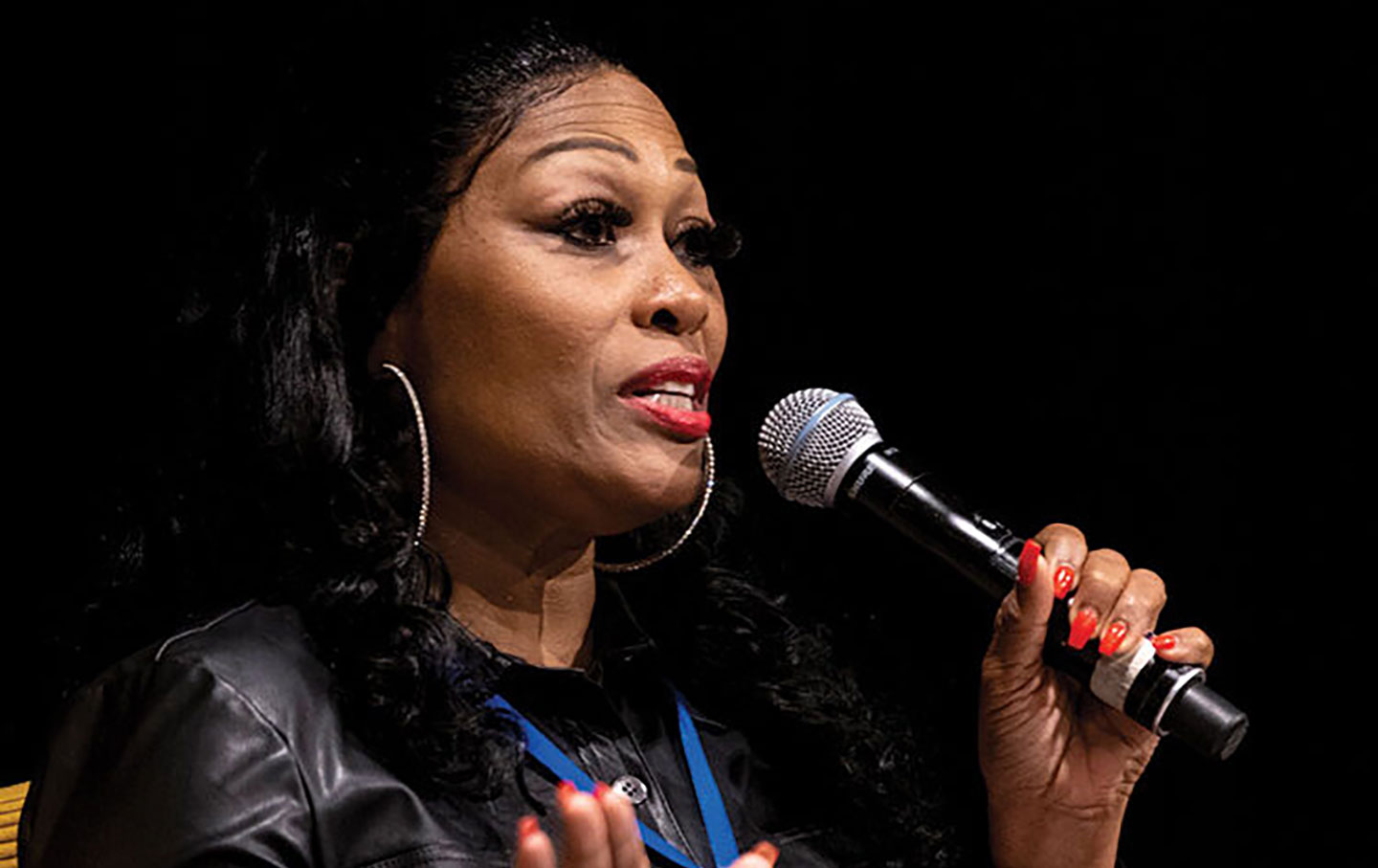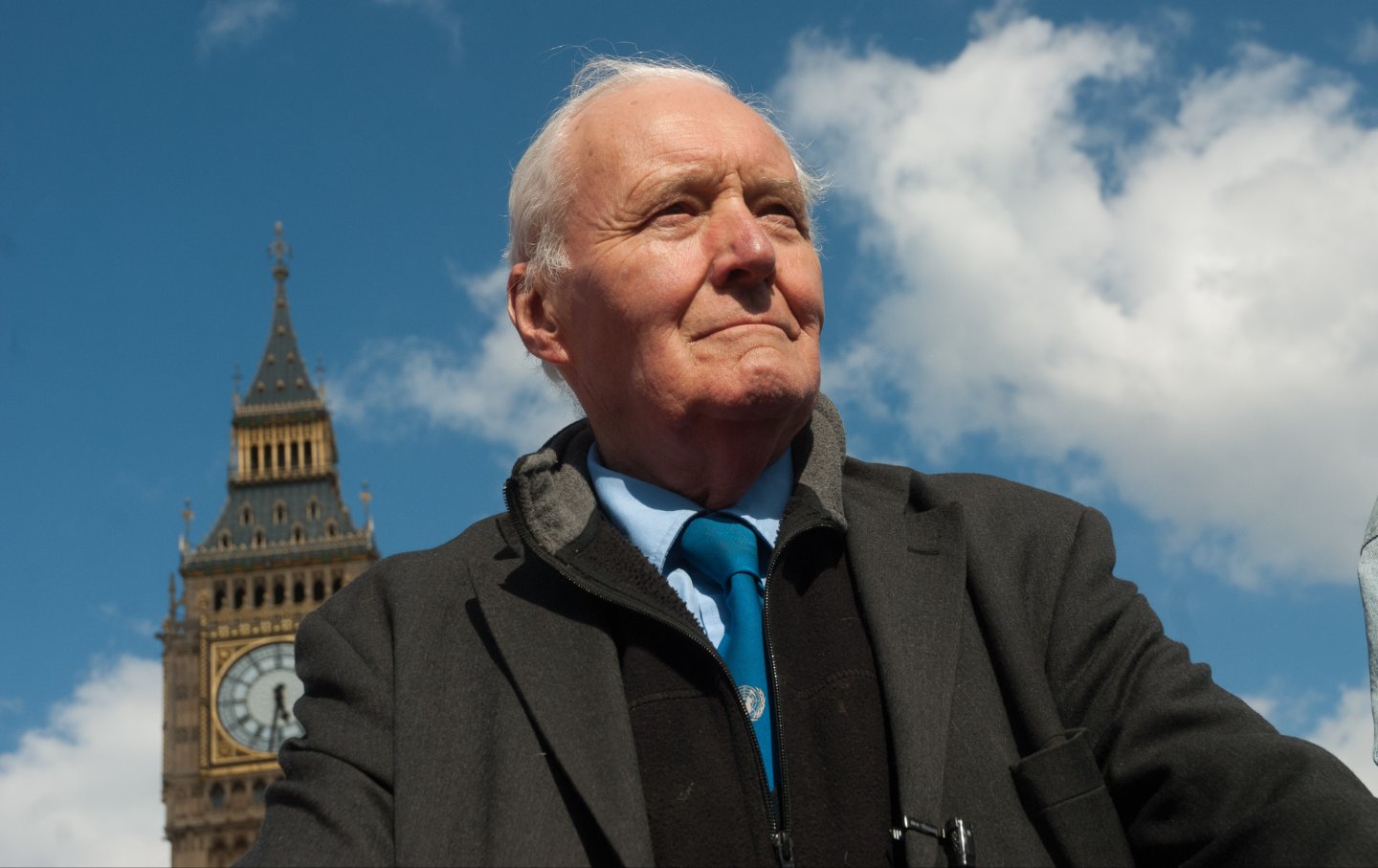Google Fired Us for Protesting Its Complicity in the War on Gaza. But We Won’t Be Silenced.
We have been demanding that Google cut its ties to Israel’s apartheid government for years, and we’re not stopping now.
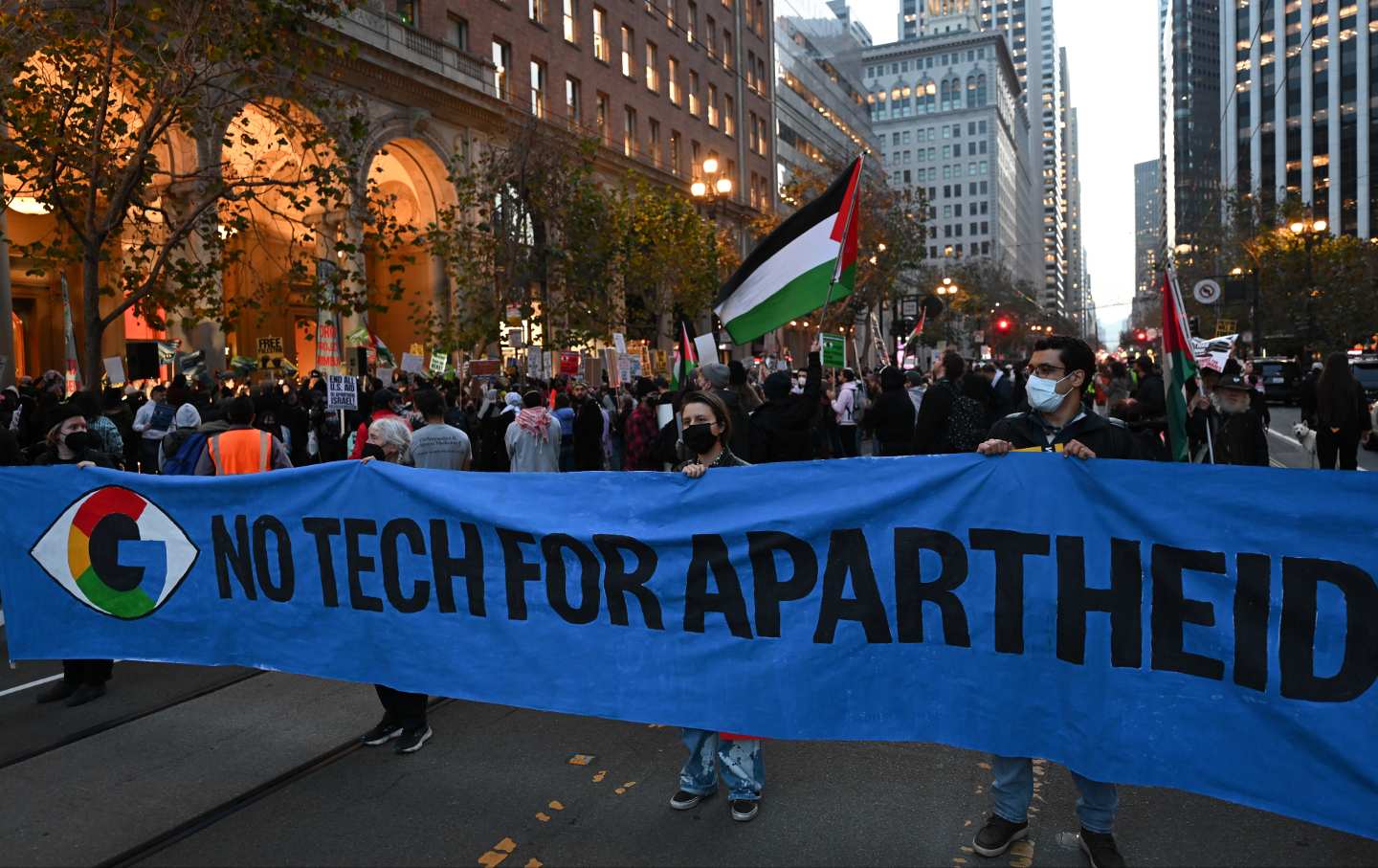
Hundreds of protesters, including Google workers, gathered in front of Google’s San Francisco offices demanding an end to its work with the Israeli government, and to protest Israeli attacks on Gaza on December 14, 2023.
(Tayfun Coskun / Anadolu via Getty Images)Earlier this month, the three of us, along with dozens of our co-workers, took part in a coordinated set of civil resistance actions at Google offices around the United States. Some workers occupied Google’s New York offices. Others occupied the Sunnyvale, California, office of Thomas Kurian, the CEO of Google Cloud.
This protest was an escalation of the ongoing No Tech for Apartheid (NOTA) campaign, which has been demanding for years that Google and Amazon cancel Project Nimbus, a $1.2 billion deal that Google Cloud and Amazon Web Services signed with the Israeli military and government in 2021. The contract provides cloud computing and AI technology for Israel’s apartheid state, contributing to state violence and now to Israel’s genocide of Palestinians in Gaza.
The day after the protests, we learned that Google had fired 30 of us, including those not actively part of the sit-ins. The following Monday, we learned that Google fired an additional 20 workers, including non-participating bystanders.
Google claims everyone fired had been “directly involved in disruptive activity,” but its leadership has yet to even provide an accurate count for the number of workers impacted by its retaliation. We have had to rely on a self-reported count from workers themselves. We are disappointed, outraged, and disheartened by Google’s refusal to engage with us.
We participated in this protest because we could see all too clearly how our day-to-day work at Google was aiding and abetting Israel’s ongoing genocide in Gaza. As tech workers, we see how Google, like Meta and other tech corporations, has engaged double standards by allowing Zionists to promote atrocity propaganda while simultaneously suppressing Palestinian voices. (This pattern of censorship long predates the current war.) We have been distressed to see our own creativity, innovation, and love of technology be used for warfare.
Many of our coworkers asked to be reassigned to different projects or took leaves in feeble attempts to distance ourselves from Project Nimbus and other military contracts. We also tried to engage our leaders with petitions, through office hour meetings, at company town halls, and through internal message boards and employee groups. Instead of engaging with us in good faith, our leadership evaded our concerns, targeted messages that expressed support for Palestine or opposition to the genocide, and censored our internal communications network. These actions have particularly impacted our Palestinian, Muslim, and Arab colleagues, who are facing an internal culture of hate, abuse, and retaliation. Ultimately, we felt we had no choice but to band together and disrupt business as usual in order to make our demands heard.
We’d like to reiterate those demands:
First, Google must cancel its Project Nimbus contract and immediately cease doing business with the Israeli apartheid government and military. Second, Google must stop the harassment, intimidation, bullying, silencing, and censorship of Palestinian, Arab, and Muslim Googlers. Third, Google must address the health and safety crisis among Google workers. (Multiple workers have quit citing the serious mental health consequences of working at a company that is using their labor to enable a genocide.) And lastly, Google must stop the retaliation against and doxxing of workers speaking out, and create a safe working environment for all workers.
Since 2021, as Google workers with NOTA, we have raised concerns about the potential surveillance and military use of our AI. In response, our “leadership” denied the military nature of Project Nimbus, claiming that the contract provides cloud computing for civilian purposes only. In November, Google CEO Sundar Pichai said he was “proud to be doing Project Nimbus as a partner to like-minded governments that share democratic values around the world.”
Yet, despite Google supposedly prohibiting using its tech for “immediate harm,” Israel is harnessing Google Photos facial recognition to create a “hit list” of Palestinians. Just a few weeks ago, Time revealed that Google does, in fact, have a direct contract with the Israeli Ministry of Defense as part of “an Israel/Nimbus deal.” What’s more, Time reported that “the tech giant has negotiated deepening its partnership during Israel’s war in Gaza.” Clearly, our executives have blatantly lied to us, as they continue to profit from the murder of over 30,000 Palestinians and the destruction of life in Gaza.
The unprecedented scale of death and destruction in Gaza is enabled by tech companies like Google. Dubbed “the world’s first AI war,” ongoing journalistic investigations about Gaza demonstrate how AI-powered target selection systems operate in tandem to profile Palestinian civilians as “terrorists,” select them as targets, and permit ruthless bombings against civilians. As +972 Magazine has reported, “The Gospel” classifies buildings as military bases; “Lavender” and “Where’s Daddy” identify and classify Palestinian civilians as terrorists under false pretenses and track their movements for target selection. The Israeli Ministry of Defense deploys automated decision systems deliberately to remove human deliberation. As one Israeli source told +972, “the machine did it coldly.”
AI is one of today’s weapons of mass destruction, and Google is a willing war profiteer. Systems like The Gospel and Lavender are made possible through the kind of cloud computing infrastructure that companies like Google, AWS, and Intel provide. “These technologies, initially used to enforce violent occupation, apartheid, and genocide have found a lucrative global market, stretching far beyond the confines of Palestine,” write cybersecurity experts at the Tor Project.
We proudly participated in this sit-in as Google workers who believe in the power of collective worker-led disruption of labor in the workplace for Palestinian liberation, anti-discrimination, and anti-repression. We reject complicity and silence amidst Google’s pursuit of profit at the expense of human lives. We demand that the technological products of our labor not be sold to the Israeli military as it commits a genocide against the Palestinian people and that none of our technology be used to harm, oppress, surveil, or kill people.
Popular
“swipe left below to view more authors”Swipe →We are not alone in experiencing retaliation. We stand in unwavering solidarity with workers and students everywhere who also see how powerful institutions in academia, journalism, and more, aid and abet the attack on Palestinian lives. The repression we face here, among healthcare workers, students, journalists, and tech workers who are speaking out, is nothing in comparison to the daily lived experiences of Palestinians at this moment.
We call on all Google, Amazon, and tech workers to join the No Tech For Apartheid campaign and build power with us to demand our bosses divest from Israel’s genocide of Palestinians in Gaza now. As code becomes tantamount to weaponry, this call could not be more urgent.
Hold the powerful to account by supporting The Nation
The chaos and cruelty of the Trump administration reaches new lows each week.
Trump’s catastrophic “Liberation Day” has wreaked havoc on the world economy and set up yet another constitutional crisis at home. Plainclothes officers continue to abduct university students off the streets. So-called “enemy aliens” are flown abroad to a mega prison against the orders of the courts. And Signalgate promises to be the first of many incompetence scandals that expose the brutal violence at the core of the American empire.
At a time when elite universities, powerful law firms, and influential media outlets are capitulating to Trump’s intimidation, The Nation is more determined than ever before to hold the powerful to account.
In just the last month, we’ve published reporting on how Trump outsources his mass deportation agenda to other countries, exposed the administration’s appeal to obscure laws to carry out its repressive agenda, and amplified the voices of brave student activists targeted by universities.
We also continue to tell the stories of those who fight back against Trump and Musk, whether on the streets in growing protest movements, in town halls across the country, or in critical state elections—like Wisconsin’s recent state Supreme Court race—that provide a model for resisting Trumpism and prove that Musk can’t buy our democracy.
This is the journalism that matters in 2025. But we can’t do this without you. As a reader-supported publication, we rely on the support of generous donors. Please, help make our essential independent journalism possible with a donation today.
In solidarity,
The Editors
The Nation

